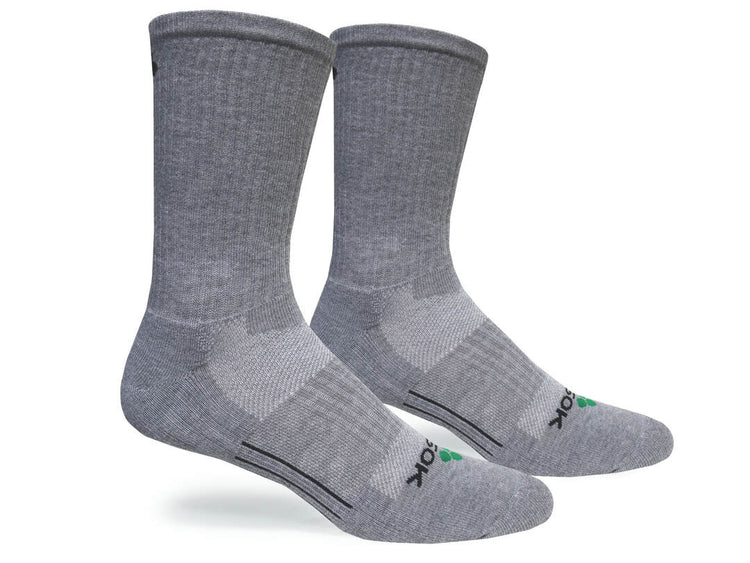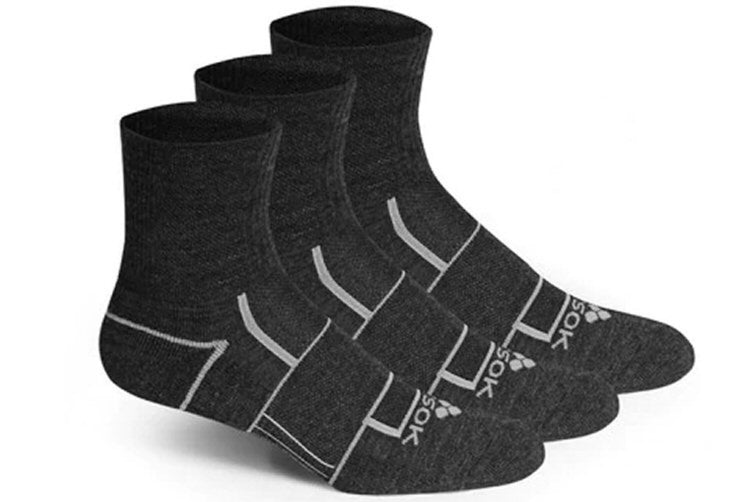So, you’ve decided to start training for a marathon. Congratulations! That’s a big goal to set! Whether you are brand new to running, or you’ve been doing it for years, marathon training takes a lot of preparation and dedication. Even if you already have experience with long-distance running, a marathon is the ultimate test of your endurance and stamina. So, be prepared to make some changes to your routine. But if you stay consistent, you will see results!
Start With a Plan
Training for a marathon is a major undertaking. And like all major projects, they tend to be far more successful if they are well-planned. If you are considering running a marathon in the future, then you should begin your focused training at least six months in advance. This will give your body time to adapt to the changes you will need to make, and it will also allow you to build up the strength and stamina you will need to last the entire 26 miles.
Like any new skill in life, consistent practice is the key to getting better. So, you need to practice for your marathon by running several times a week, every week, for the six months leading up to the race. A good pattern to keep is running three days per week, with one run being short and fast, one medium-length, and one long run. Experimenting with pace will also help you to build up endurance and put different kinds of (healthy) stress on your body.
Build Up Distance
If you are a new runner, then it is important to start in small increments, and gradually increase your distances. There is no shame in starting with a one-mile run! The point is to stay consistent. If you take your time and trust the process, then you will eventually be able to run for 5, 10, 20, and eventually 26 miles! As you feel yourself mastering smaller runs, slowly increase the distance every week or two. The goal is to be able to complete at least one 20-mile run four weeks before race day. Once your body has acclimated to your new routine, muscle growth and increased stamina will develop naturally.
Cross-Train
If you take a look at any Olympic athlete’s workout regimen you’ll notice that none of them train solely by playing their sport. This is because only doing one consistent motion, like running, will not prepare your body for peak performance, and can even lead to injury. While you are training for a marathon, it is very important to “cross-train” by incorporating other sports and styles of movement into your routine. So, your week should include two days of cross-training as well as three days of running. Some examples of cross-training can be swimming, weightlifting, hiking, or biking. These activities will strengthen the rest of the muscles in your body and help to support the movement of running.
Rest
One of the most important elements of marathon training can sometimes seem counterintuitive. But it is vital that you purposely incorporate rest into your week. You should never train more than 5 days a week. Your body needs at least two 24-hour periods where you do no strenuous movement. If you are spending most of your week working your body hard, then it truly needs those two days to recover. Recovery periods are especially important after your longest run every week.
Another important aspect of rest is prioritizing your sleep. During deep sleep, the cells in your body regenerate, effectively repairing the micro-tears you have caused in your muscles during training. This strengthens and develops your muscles, preparing them for further use. Deep sleep only occurs once during each 90-minute sleep cycle, and typically for about 20 minutes at a time. So, the more sleep cycles that you can achieve each night, the more your body can repair itself. That’s why you should make an effort to get at least 6-9 hours of sleep every night while you are in training.
Adjust Your Diet
Marathon training requires making adjustments to your diet, but it is NOT a time to ‘go on a diet.’ During this training period, you want to be building muscle and fueling your body properly, so the worst thing you can do is cut vital macronutrients like carbs. Our bodies use carbohydrates for fuel, so it’s important to up your carb intake while training to give your body the extra energy it needs. However, make sure that these carbs are coming from healthy sources, like whole grains and vegetables, not foods high in sugar and starch.
To encourage muscle growth, you should increase your daily protein intake. This will help your muscles to recover after training as well as give them nutrients to maintain their growth. And finally, because you will be burning a lot more calories than usual, you should also up your intake of healthy fats to increase satiety during meals. Running hungry makes for a miserable and ineffective training session.
Take Care of Your Body
While you are training, you need to take good care of your body to keep it running like a well-oiled machine. You can do this by always listening to your body. If it is screaming for you to take a rest day, then you should take a rest day. Pushing your body to train when what it needs is a recovery period can result in an injury. And you should never run while you are injured. This will make your physical condition even worse and delay your training progress.
Another way to prevent injuries is to prepare for every workout session. Make sure you are taking time to sufficiently stretch and warm up/cool down before and after your training. This routine will ease your muscles and joints in and out of stasis without them becoming stiff and painful.
Invest in Proper Gear
And finally, one of the best ways to prevent injury while training is to invest in proper running gear. Every expert will tell you to research a high-quality set of running shoes that will match your physicality and running goals. That’s true! Good running shoes are an integral part of successful and injury-free training.
Here at FitSok, we want to key you in on a little running secret: Socks! The proper running socks will truly make the difference! Investing in some top-of-the-line running socks like we have available on our site can go a long way to protecting your feet from the rigors of marathon training. Great socks can do things like increase circulation, decrease friction and blisters, support your arches, let your feet breathe, and even protect against conditions like plantar fasciitis! Take a minute to check out what we have to offer. We promise that your running experience will never be the same.







Leave a comment
This site is protected by hCaptcha and the hCaptcha Privacy Policy and Terms of Service apply.